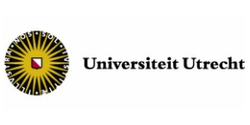PhD: The Psychological Consequences of Unequal Treatment in the Classroom
Updated: 26 Mar 2025
Inequality is on the rise globally. And this is visible in the classroom. Children from low socioeconomic status (SES) or immigration backgrounds underperform in school relative to their high-SES or non-immigrant peers, even when they are equally competent. As a PhD candidate in this project, you will study the psychological consequences of unequal treatment in the elementary school classroom.
Your job
Teachers often seek to reduce such achievement inequality by tailoring education to the needs of individual children (also known as within-school differentiation).
- One approach is formal differentiation, which involves assigning children to different ability groups (e.g., low ability groups receive additional instruction, high ability groups more challenging tasks).
- Another approach is informal differentiation, which involves teachers adapting their teaching practices to children from different backgrounds, often unknowingly and unintentionally (e.g., setting higher expectations, providing more praise).
Although these formal and information differentiation practices can be beneficial, they might also have adverse effects (e.g., children in low ability groups develop negative self-views). In this PhD project you will examine the psychological impact of differentiation practices on children (6-12 years) and whether it can inadvertently contribute to unequal opportunities.
The overarching project consist of two research projects:
- Research Project 1 takes place at the Kids in Context Lab part of the Department of Developmental Psychology, Utrecht University. This project focusses on formal differentiation, such as ability grouping. The current vacancy is for this project.
- Research Project 2 takes place at KiDLAB, part of the Research Institute of Child Development and Education, University of Amsterdam. This project focusses on informal differentiation (e.g., setting higher expectations or providing more encouragement to children). The vacancy for this project can be found on the website of the University of Amsterdam.
Although the projects take place at different institutions, they are part of the same research programme and involve close collaboration between the PhD candidates. The PhD candidates will conduct their own studies, but they will collaborate with each other to conduct a longitudinal study in a socioeconomically diverse sample. The goal is to examine how differentiation practices shape interpersonal and intrapersonal outcomes over time.
Both projects are supervised by Jellie Sierksma (Utrecht University) and Eddie Brummelman (University of Amsterdam). Stefanie Nelemans (Utrecht University) will co-supervise Research Project 1. We are an interdisciplinary team, combining insights from developmental, educational, and social psychology, as well as adjacent disciplines such as sociology.
Your tasks include the following:
- Together with your supervisory team, you will design and conduct novel empirical studies.
- You will integrate novel insights across disciplines, including developmental psychology, social psychology, education sciences, and sociology.
- You will be responsible for all aspects of data collection (such as recruiting participants and conducting research at schools or the NEMO Science Museum).
- You will use advanced statistical methods to process and analyse data (e.g., R studio, MPlus).
- You will write international peer-reviewed scientific papers.
- You will present your work at international conferences for academics, policy makers, and educators.
Requirements:
- You have a Master’s degree in psychology, pedagogics, sociology, educational science, or an associated field, or you will obtain your degree this academic year.
- You have experience with or interest in quantitative research, preferably involving children.
- You are motivated to design and conduct your own quantitative research.
- You have excellent quantitative data-analysis skills.
- You have excellent writing and presentation skills.
- You have excellent English and Dutch language skills or you are willing to learn Dutch, as you will be interacting frequently with children.
Salary Benefits:
- a position for one year, with an extension to a total of four years upon successful assessment;
- a working week of 38 hours and a gross monthly salary between €2,901 and €3,707 (salary scale P under the Collective Labour Agreement for Dutch Universities (CAO NU));
- 8% holiday pay and 8.3% year-end bonus;
- a pension scheme, partially paid parental leave and flexible terms of employment based on the CAO NU.
In addition to the terms of employment laid down in the CAO NU, Utrecht University has a number of schemes and facilities of its own for employees. This includes schemes facilitating professional development, leave schemes and schemes for sports and cultural activities, as well as discounts on software and other IT products. We also offer access to additional employee benefits through our Terms of Employment Options Model. In this way, we encourage our employees to continue to invest in their growth. For more information, please visit Working at Utrecht University.
36 - 40 hours per week
Heidelberglaan 1

